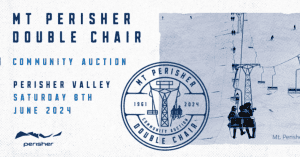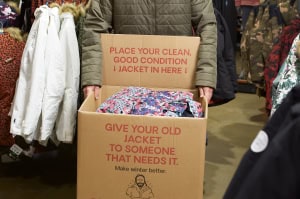Terje Haakonsen Calls For Olympic Snowboard Ranking
![]()
Should snowboarding be in the Olympics? Snowboard legend Terje Haakonsen says the IOC has a responsibility to “release snowboarding’s potential”.
By Russell Holt
Editor – Transfer Snowboard Magazine
In a “letter to the editor” released globally yesterday from Norway, the ‘Olympics & snowboarding’ debate has been reignited just as the International Olympic Committee (IOC) looks to add yet another discipline, snowboard slopestyle, to the Winter Olympic Games agenda in Sochi, Russia 2014. This week’s FIS (the International Ski Federation) Snowboard World Championships slopestyle event – the first ever – is the IOC’s ‘test run’ as it examines the Olympic potential of the event and the competitor field.

Terje Haakonsen, a living legend of snowboarding who famously boycotted the first Olympic snowboard event, founded and runs the Oakley Arctic Challenge is again speaking up about the IOC’s plan to introduce snowboarding slopestyle at the 2014 Winter Olympic Games in Sochi, Russia.
This ongoing debate about snowboarding and the Olympics has divided the global snowboard community since a revolt by the snowboard industry against the IOC and FIS decision to add the snowboarding halfpipe to the Winter Olympics in 1998. The revolt was famously fueled when one of the greatest snowboarders to ever strap-in, Terje Haakonsen (the then favourite to win the event) boycotted the Winter Olympic Games as a protest against what he called a “corrupt IOC and FIS”. At the time, the IOC had awarded FIS, the governing body for skiing, the responsibility of administering snowboarding Olympic qualifying over the now defunct International Snowboard Federation (ISF) crippling the ISF in the process. The furor was based on the fact that the FIS had never successfully run a snowboard halfpipe World Tour.
So here we are again, on the eve of the FIS Snowboard World Championships inaugural slopestyle event, Terje Haakonsen along with Henning Anderson, the owners and organisers of The Arctic Challenge (and part founders of the TTR World Snowboard Tour – a tour set-up for snowboarders to rival the unpopular FIS tour), are proposing a solution to the IOC to not repeat the mistakes of the past and “release snowboarding’s potential”. Their letter even states that the IOC has a “corporate responsibility” to do so.
So with this letter out on the table, the split within snowboarding’s ranks may again appear as some agree with Terje’s stance and even go on to argue that snowboarding should have less rules, less competition and at the very least snowboarder-run events (not FIS run events). While others believe snowboarding has grown up and is now a legitimate sport, to which the Olympics provides the ultimate sporting platform for snowboarding to be displayed, regardless of who runs it.
There is merit in both these arguments, but whichever school of thought you subscribe to, no one can discredit the economic significance of the snowboard Halfpipe competition at the 2010 Vancouver Olympics. It produced the highest ever TV ratings in the USA for a winter Olympics and propelled the winners Shaun White and Australia’s own Torah Bright into superstardom. (How can anyone forget Shaun on the MTV Awards red carpet this year, crowing along next to P-Diddy in post Olympic gold glory, sans shirt, leather vest, fox tail belt and going for his best Jim Morrison impersonation… wow!? – Google it!)

Australia’s gold medal winner from Vancouver, Torah Bright probably doesn’t really care about all this politics. Should she? Photo Jake McBride
But for snowboarding, and the Olympic brand, to benefit fully from snowboarding’s commercial appeal, it is obvious to everyone that something must be done about the confusion of different organisations currently governing snowboarding that has been described as making boxing’s structure look simple. This confusion and consequent event scheduling is at the core of Terje and Henning’s letter. Currently there is FIS, which administers the IOC recognised Olympic qualifying events, being the FIS World Cup and FIS World Championships, the World Snowboard Federation (WSF) and the TTR World Snowboard Tour – the later two are considered as being the best competitive tours and which unite the world’s biggest snowboarding events outside of the Olympics, such as EXPN’s Winter X Games, The Dew Tour and the Burton Global Open Series under one umbrella rider ranking system.
In the following open letter, Terje and Henning are repeating the actions of the ISF in 1996 and extending what looks like an olive branch to the IOC (and the FIS) decision makers, by suggesting an “Olympic Ranking” be introduced that would incorporates all current tours under one umbrella, finally uniting these confusing factions. The hope is that this will improve the difficulties that competitive snowboarding is facing, including event scheduling and titles.
Let’s hope (at least in this editor’s opinion) that the IOC has the insight and wisdom to at least come to the table and start a dialogue with the peer-voted leaders of snowboarding, like Terje and the TTR whom have (again) raised valid concerns for snowboarding’s future and the effects it will have on every snowboarder.

Young champions like Scott James of Australia, who was the youngest snowboarder to ever compete at an Olympic snowboard event (aged 15 in Vancouver, 2010) may be strapping in for a slopestyle event at the 2014 Sochi Winter Olympics in Russia. The question is; will that strip him of becoming a recognised figure within his own sport? Photo Jake McBride
“Letter To The Editor”
From Terje Haakonsen and Henning Anderson
Wednesday 19th January, 2011.
As the Olympic slopestyle/snowboarding discussion is peaking, it is time to cast some light on this future defining topic for competitive snowboarding. This upcoming weekend the ski federation FIS introduces slopestyle on the program, at the same time as the best slopestyle riders are competing in Dew Tour. And the IOC is about to decide on whether they will include slopestyle in the Olympic program or not. Some remarkable events have taken place in the last year. Let us recap:
After the extraordinary tv rating success from the halfpipe contest in Vancouver, top cats from IOC and NBC saw the potential in expanding the snowboard program at the Olympics. Seeing the golden boy Shaun White go double at the next winter Olympics (Sotchi 2014) would be a rating wet dream. In the fall of 2009, USA, Canada and New Zealand had prepared a proposition for the ski federation FIS’ annual congress in Turkey, June 2010. The idea was to prepare slopestyle for the 2018 Olympics by introducing it at the FIS Snowboarding World Championships. As IOC requires two successful World Championships before considering new sports for future games.
By then, the FIS delegates were euforic by the snowboard hysteria after Vancouver. They jumped the conclusions and bypassed the requirements, and decided to speed up the process by submitting an application to the IOC immediately – before having tired it out in a single world championships. It is reasonable to imagine they felt confident that IOC would be positive to an application.
The only problem was that IOC had lots on their plates in their next meeting, in Acapulco in October. The most disturbing topic was women ski jumping; a nightmare for the Olympic movement. Women ski jumpers have been fighting for years to enter the Olympics, but has faced serious opposition both within FIS and IOC. Many believe women ski jumping (also in the sports media) has not enough participants, it is low on quality and the international reach of the sport is not good enough. Women ski jumpers has also sued the IOC before the Vancouver Olympics for discrimination, but they lost in Canadian legal system.
Allowing snowboard slopestyle, as well as twintip ski halfpipe and slopestyle, before solving the women ski jumping issue probably made the choice impossible for IOC. Rather than submitting some sports and denying others, they made one statement for all: We will await and see the quality of the sports at the upcoming world championships. FIS has several world championships coming up this season; among them the Nordic Ski World Championships in Oslo, the Snowboard World Championships in Molina, Spain and the Freestyle World Championships in Deer Valley and Park City.
Only problem was that neither Molina nor Deer Valley/Park City had planned for a slopestyle! Even worse: Deer Valley bans snowboarding on a general basis and they do not have a terrain park. In Norway, where the snowboard federation is independent of FIS, and are part owners of the TTR/WSF World Snowboarding Championships in 2012, this whole situation culiminated in a public debate. IOC executive board member Gerhard Heiberg admitted that IOC wanted to check out more than just FIS events when deciding upon the quality of slopestyle. As FIS did not have slopestyle on their Olympic program, this opened up for a new scenario in the debate; if the IOC could look at non-FIS events, could they also approve these events as qualifiers for the Olympics?
Everyone working with top level snowboarding contest know how much the date conflicts in Olympic qualifying years is hurting the sport. This has been bad before, but in 2013, when riders are qualifying for both halfpipe and slopestyle, will be a nightmare. And this is the fundamental problem of competitive snowboarding: It will never reap its full potential before the Olympic issue is solved. Snowboarding is not a 4 year cycle event. It is a daily operation where progress is happening in all corners of the world – summer, winter, spring and fall. At the moment the Olympic halfpipe finals is only good for the podium winners, IOC and the broadcasters. It does not help the sport as a whole.
The date conflicts is the most apparent problem. This was cruely exposed when FIS all of a sudden decided to include slopestyle in Molina – two months before the event! This was obviously a move to impress the IOC before the slopestyle decision, but it was not a good move for the sport: the slopestyle contest in Molina happens on excact the same dates as the Dew Tour stop in Killington. All Dew Tour riders, being the best slopestyle riders in the world, are long time signed for these events. Meaning the FIS World Champion in slopestyle (and in halfpipe for that matter) will be crowned without the best riders attending.
Competitive snowboarding has a fantastic potential. Right now judging formats, slope design, prize money, tv production/distribution and rider services is progressing fast in TTR events, X Games and Dew Tour. These are the best events in the world. But they are outside the Olympic family. As the biggest winter sports event in the world, we believe IOC holds a corporate responsibility for directing the solution. This will not only release the potential of the sport, but also speed-rocketing the quality of snowboarding contests at the Olympics. All of us, including event organisers, FIS, IOC and federations, should find a solution for the better good of the sport. Otherwise the losing party will be the riders; they will be forced into making impossible choices between conflicting events in 2013 – on any given weekend throughout the season.
We believe such a solution could be a common Olympic ranking, not sanctioned by FIS or TTR, but a joint ranking list based on results from the best events in the world. By embracing this, the IOC would take a credible position for the youth of the world and take charge in the ongoing action sports revolution. We are willing to talk to find a good solution for the sport. But we are also willing to keep fighting for snowboarding like we have done for over a decade. The Olympic system for snowboarding is wrong; preserving the status quo is not an option.
Terje Haakonsen
Henning Andersen
Owner and organiser of The Arctic Challenge






